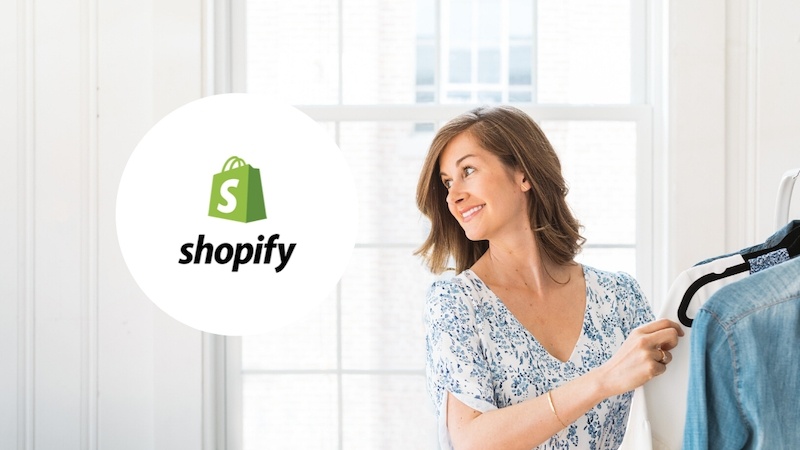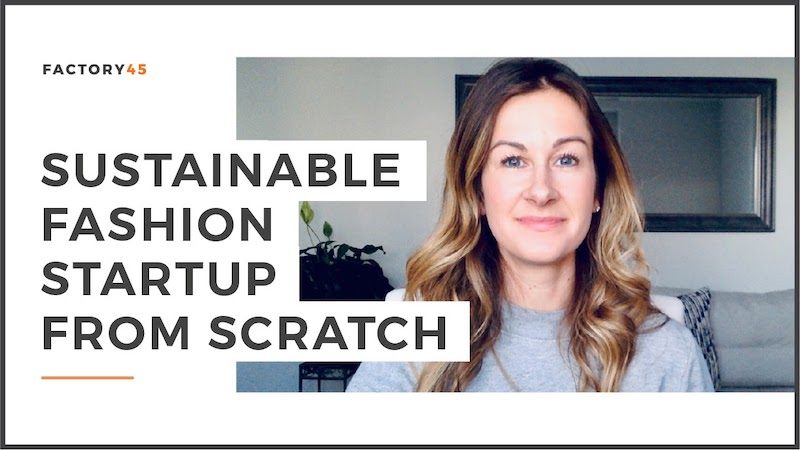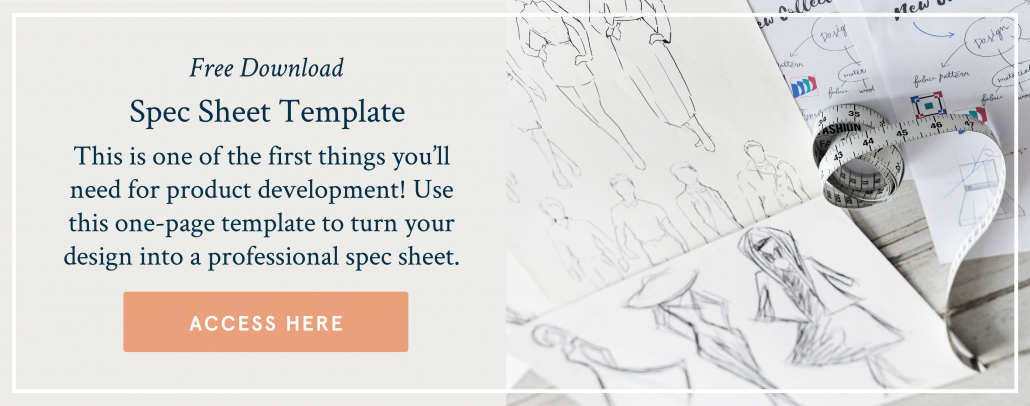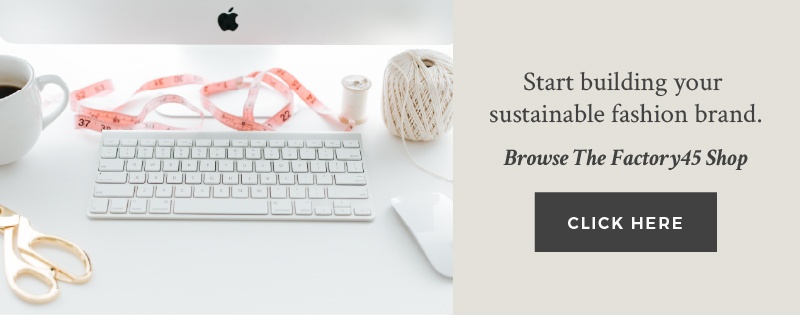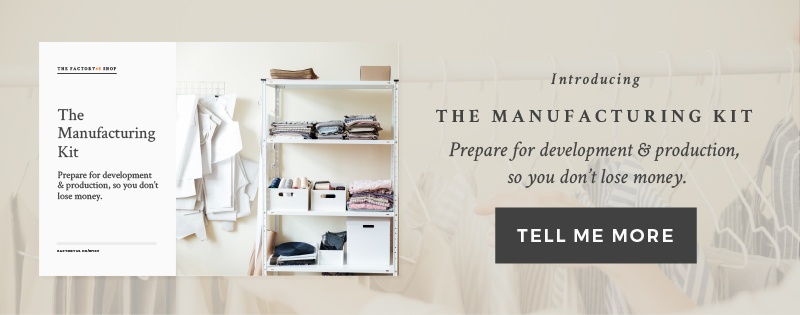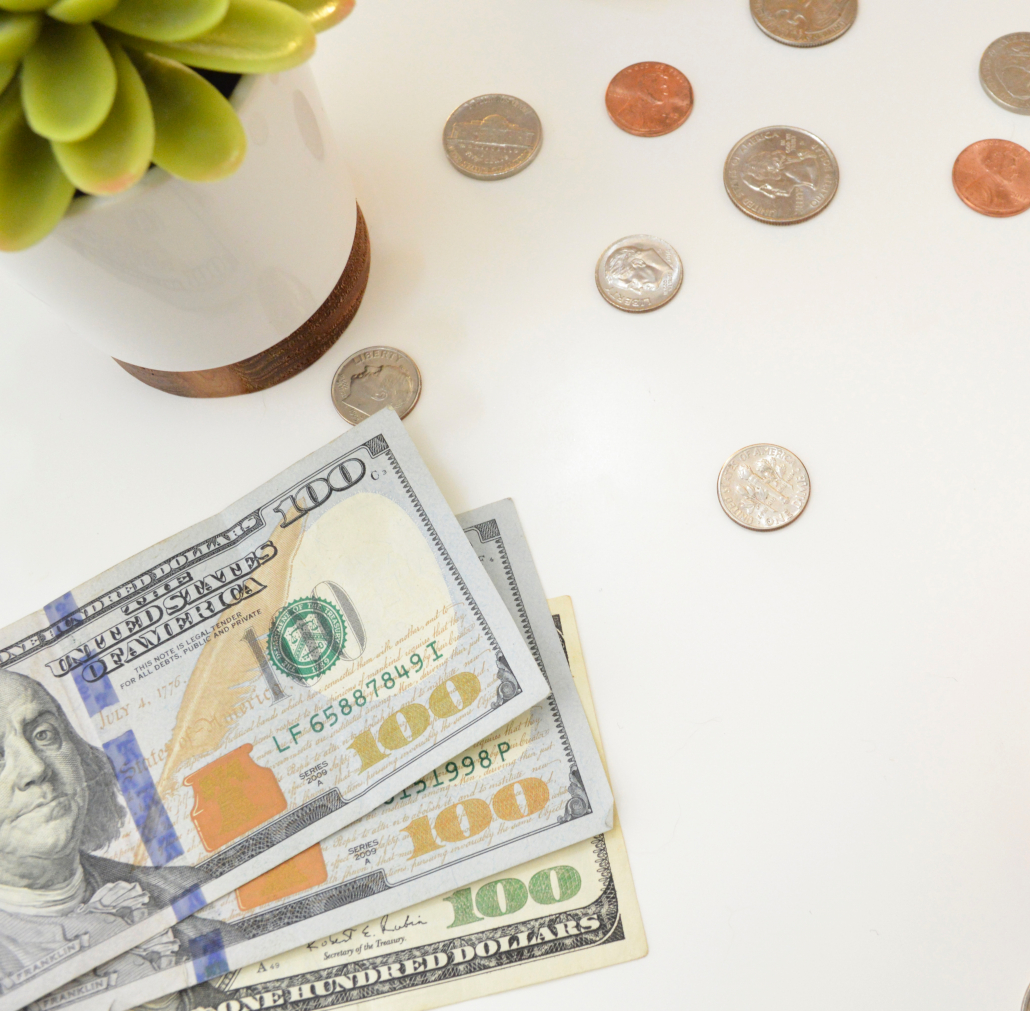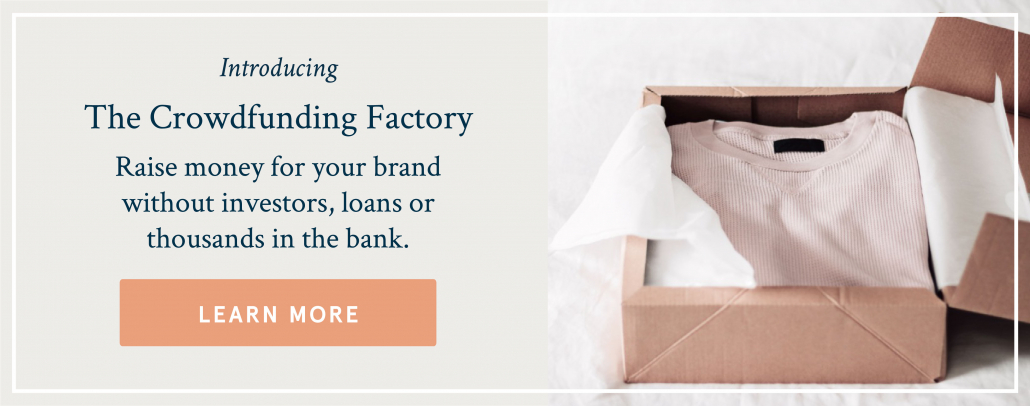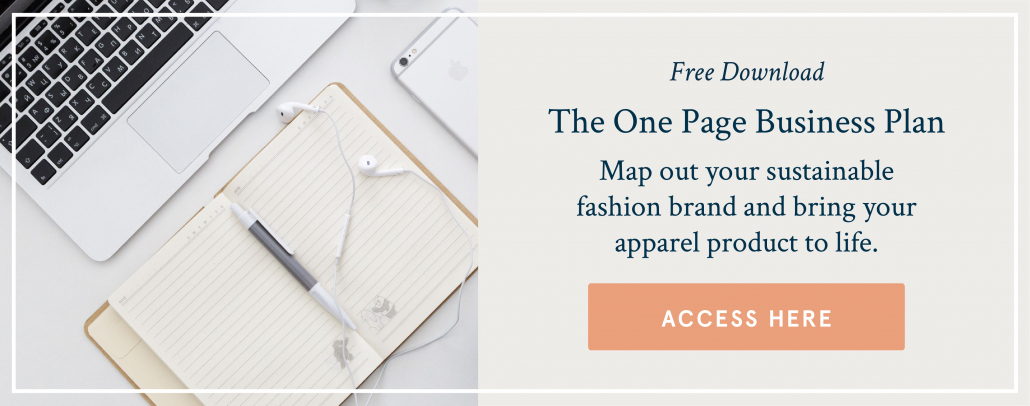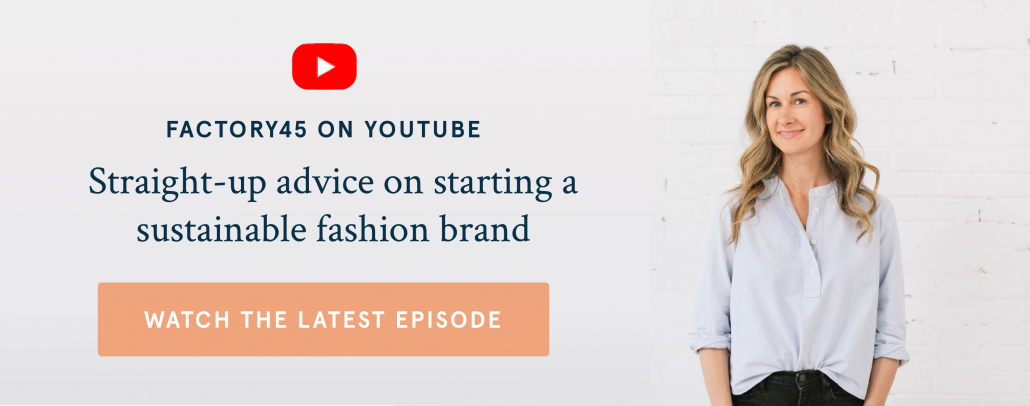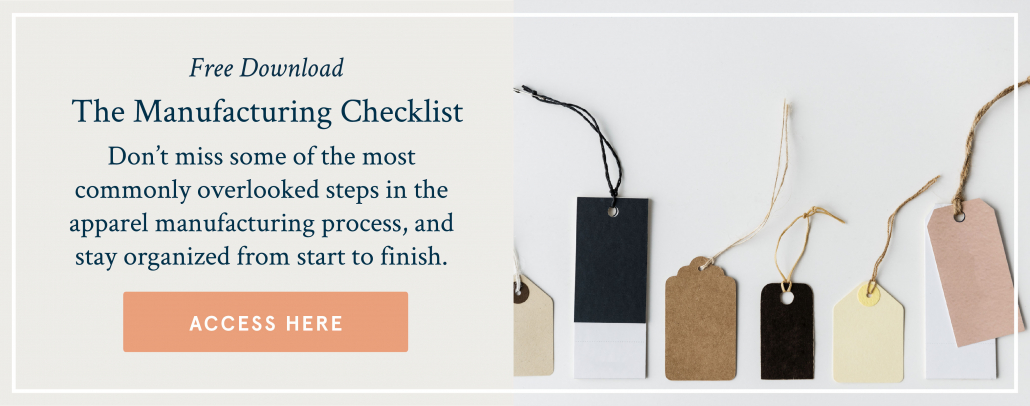So, here’s an unpopular (secretly popular) topic:
Money.
More specifically, how to start a business when you don’t have a lot of money.
If you scour the internet, you can find enough stories of multi-millionaires who started from zero, eating chickpeas out of the can while sleeping on their friend’s futon.
But there’s a less extreme version of this, and it’s far more common.
It’s the story of the woman craving a creative outlet. She’s managed to save a small “safety net” of cash and even has some disposable income at the end of the month.
She sees acquaintances on Facebook breaking out on their own.
And she wonders to herself, how did they do it?
What do they know that I don’t?
So she starts to research.
“How to start a clothing line,” she types into Google.
From Marie Claire to WikiHow to “Startup Bros,” she faces 938,000,000 search results.
Overwhelm begins to set in, but she makes one conscious choice:
To take the first step.
This was my reality in 2010.
I was just starting out, trying to launch a sustainable fashion brand, and I had no idea what was what or who was who.
The entire industry was a mystery to me with limited access.
Nevertheless, I committed to putting $5,000 into a business bank account as an investment in a company I didn’t yet have.
I’ll never forget transferring that hard-earned cash as one lump sum, knowing that it was all of my savings and probably money that I would never see again.
It was a calculated risk, and there were no guarantees.
When I look back on that first bank transfer I remember it as the first of many times I took a risk for my business without knowing how it would turn out.
Nine years later, I now know it’s the name of the entrepreneurial game.
Whether it was investing money into a Kickstarter campaign I wasn’t sure would be successful or hiring a business coach or buying the numerous online courses I’ve enrolled in, what I’ve learned is this:
You have to be willing to invest in your business before you know it’s a sure thing.
I don’t mean that you should take out a second mortgage or drain your 401K, but you have to be willing to spend money to start or grow a business.
There is no way around it.
So, how do you do this without succumbing to the fear of bankruptcy and homelessness?
Create a “worst case scenario” plan.
Over the years, I’ve always told myself that if I lost all of my savings I could jump behind a bar and start pouring drinks again. As much as I hoped my bartending days were over, I knew that I could make cash quickly if I had to.
For you, it might be nannying or waitressing or admin or cleaning houses or freelancing.
Depending on how dire your “worst case scenario” plan is, having one can do two things:
- Be an indication that you’re not ready to take action on your business.
- Or liberate you.
It’s the litmus test you need to make a big financial decision.
So, secret #4 is this: To start a successful business, you must be willing to invest in uncertainty.
Because there is not an entrepreneur I know who got their company off the ground for free.
This is a multi-part series, celebrating the five-year business anniversary of Factory45. If you missed “secret #1” you can read it here, if you missed “secret #2” it’s here and “secret #3” is here.


